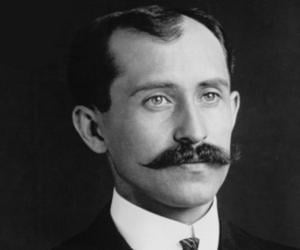Orville wright the inventor of the first successful airplane was involved in the first aircraft accident in history orville survived but his passenger died

Orville Wright: The First Aircraft Accident in History

Introduction
Orville Wright, along with his brother Wilbur Wright, is known as the pioneer of aviation. They successfully invented and flew the world’s first powered and controlled aircraft on December 17, 1903. However, within a few years after their groundbreaking achievement, Orville found himself involved in history’s first-ever aircraft accident, which resulted in the tragic death of his passenger.
The Inventor’s Journey
Born on August 19, 1871, in Dayton, Ohio, Orville Wright had an immense interest in mechanics and engineering from a young age. Alongside his brother Wilbur, Orville delved into various inventions and businesses before turning their attention to aviation.
The Wright brothers’ fascination with flight began with the gliders of prominent German aviator Otto Lilienthal. Inspired by Lilienthal’s work, they started experimenting and building their own gliders, continuously advancing their knowledge and understanding of aerodynamics.
The Wright Brothers’ Success
After years of meticulous research and countless experiments, the Wright brothers achieved their ultimate goal. On that unforgettable day of December 17, 1903, at Kitty Hawk, North Carolina, Orville piloted the Flyer, the world’s first successful powered aircraft, while Wilbur looked on. The flight lasted 12 seconds and covered a distance of 120 feet, marking a momentous milestone in human history.
The Historic Accident
On September 17, 1908, Orville Wright found himself in a tragic incident that would go down in history as the first aircraft accident. He was piloting a demonstration flight to showcase the potential of their aircraft to the United States Army at Fort Myer, Virginia. Accompanying him on the flight was Lieutenant Thomas E. Selfridge, the first person ever to die in a powered airplane crash.
All seemed well as the aircraft soared through the air, but shortly after takeoff, disaster struck. A propeller blade on the Wright Military Flyer broke off, leading to the loss of control. The aircraft spiraled downward, crashing violently into the ground. Orville and Selfridge were both ejected from the cockpit, sustaining severe injuries upon impact.
The Aftermath and Legacy
While Orville Wright survived the accident, Selfridge succumbed to his injuries and became the first fatality in a powered airplane crash. The incident left Orville devastated, realizing the inherent dangers of aviation.
Although the accident was a tragic setback, it did not deter Orville from continuing his pursuit of aviation excellence. In fact, it motivated him and his brother to improve aircraft design, safety features, and flight controls. Their dedication and pioneering spirit laid the foundation for modern aviation and revolutionized air travel as we know it today.

Conclusion
Orville Wright, the inventor of the first successful airplane, faced unimaginable tragedy in the first aircraft accident in history. His determination to overcome adversity played a significant role in shaping the future of aviation. Although the accident claimed the life of his passenger, Lieutenant Thomas E. Selfridge, it marked a profound turning point in the awareness of aviation safety and set the stage for advancements in aircraft design and technology.
Sources:
Related Posts
Quick Links
Legal Stuff

